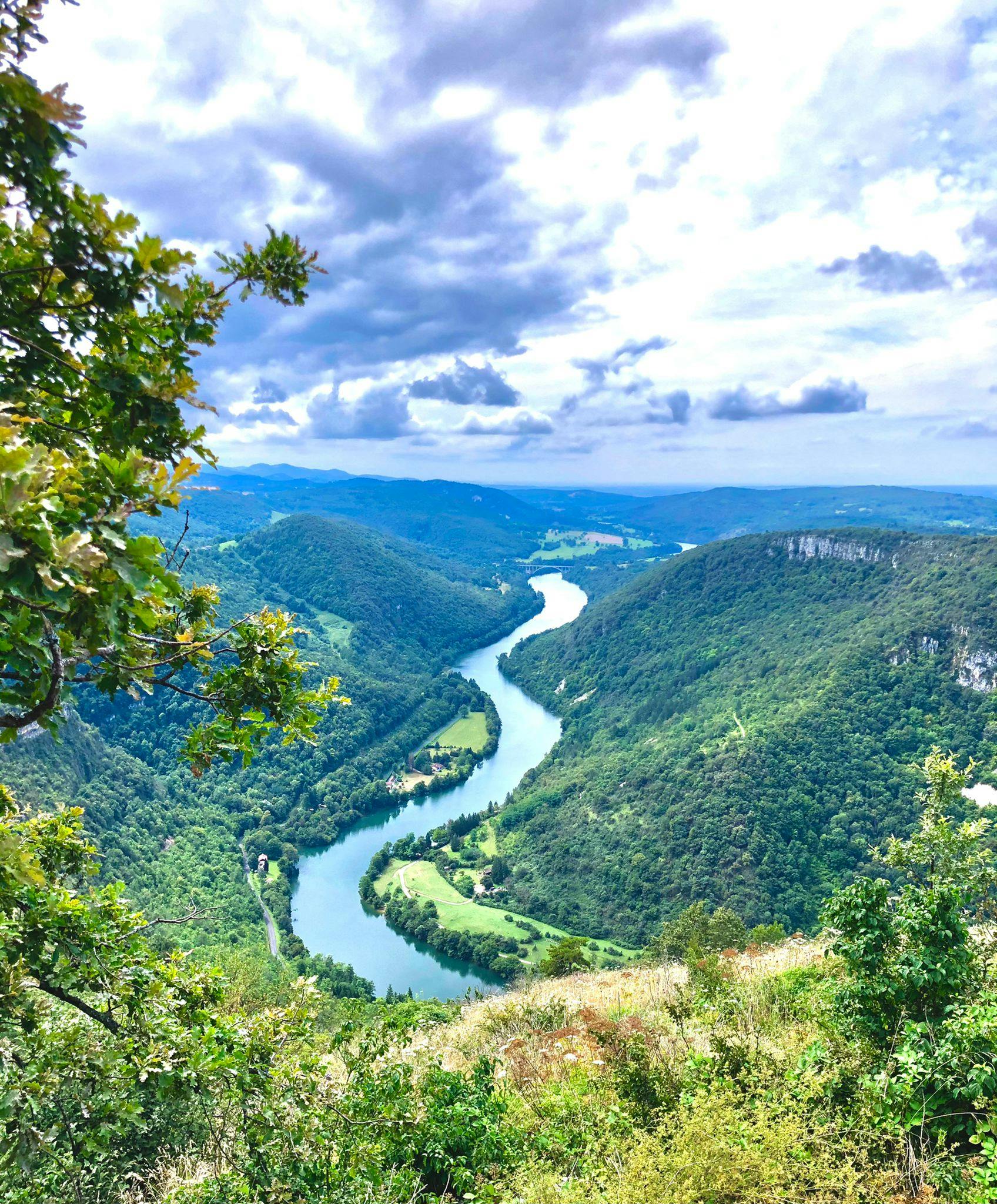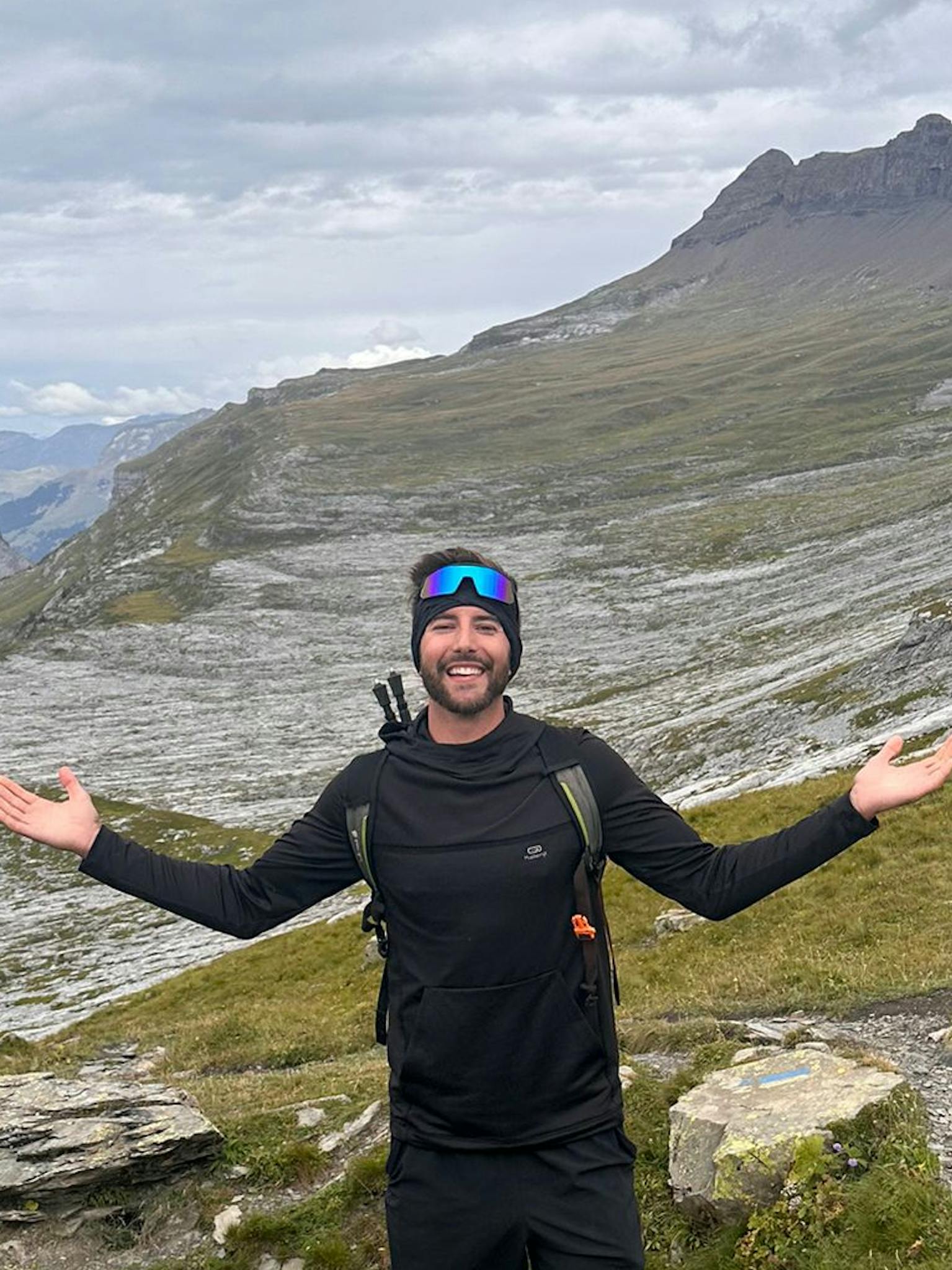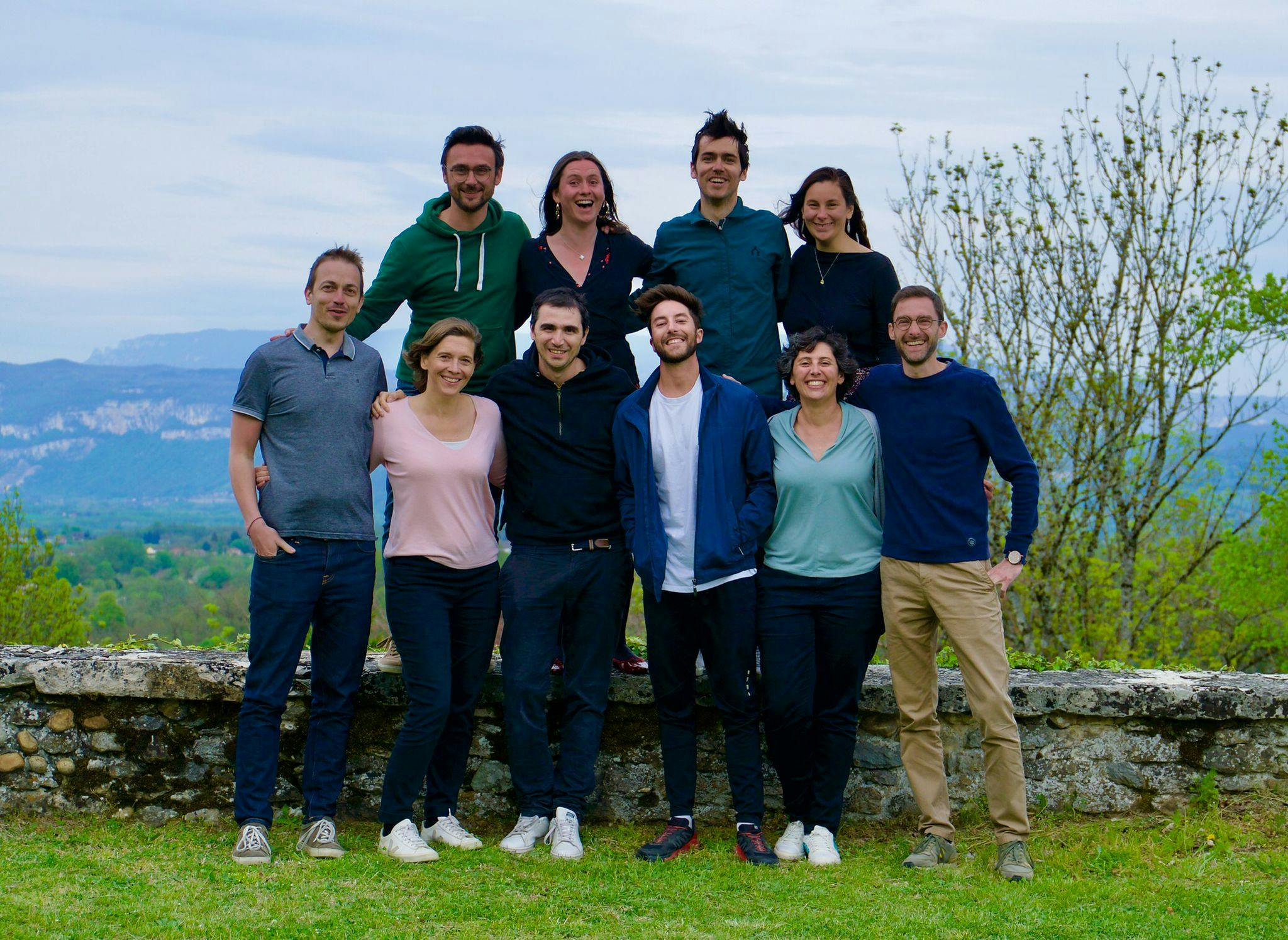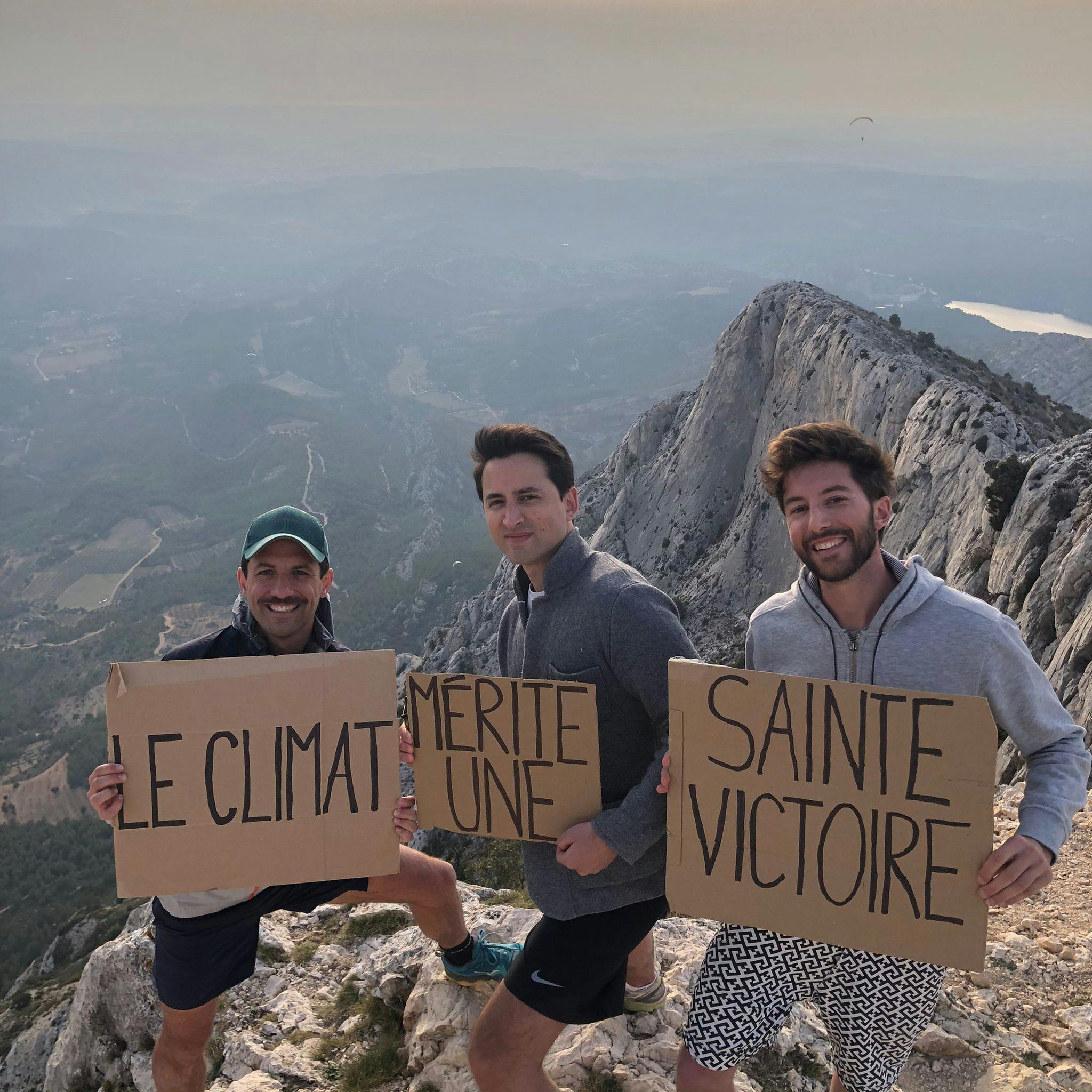Arthur Auboeuf, decarbonizing society without forgetting to be happy
Co-founder of Team for The Planet, we asked Arthur Auboeuf to talk about his relationship with work. Between the hyper-productivity he inherits from the startup culture and the need to slow down, which he knows is necessary to preserve his physical and mental health, the balance is sometimes difficult to find. All the more so with Team for The Planet, a large-scale project with a strong societal impact, the temptation to over-commit is great. Arthur tells us about this constant balancing act at work, working between the old and new worlds, and enjoying it all the while.
Commitment to the transition: a trigger or a process?
For Arthur, his commitment came about more gradually. "I think that's the case with everyone. Changes are gradual, and you have a few pivotal moments when you make decisions." From a professional point of view, it was the increasing dissonance over the years that decided him to leave his previous job. "I was in charge of Europe for an American social network. Getting kids to dance on a smartphone app isn't exactly the consecration of usefulness." Adding to his questions about the usefulness of his work is his growing awareness of ecological issues, becoming increasingly informed via the media. "The more informed you are, the stronger the dissonance," he explains, "because we're all confronted with a societal project. And today, the dominant project of society, which hires the most people, is a project that pushes us towards the fall." For Arthur, this is how the process began: by reading the IPCC and other sources of information on the consequences of global warming, he is reconsidering his day-to-day work.
A direct witness to change
Arthur spent his childhood and adolescence in the Jura mountains. He considers himself privileged to have grown up in these surroundings. His attention to nature, on the other hand, makes him one of the first spectators of its degradation. "Spruce trees are dying because of bark beetles, insects that destroy trees, especially those already weakened by drought. Their destructive power is therefore increasingly strong with the frequent droughts linked to global warming" is an example he gives. The yellowing forest and frequent absence of snow in the mountains are also consequences, which he observes by comparing these landscapes with those of his childhood. "By seeing and observing in the field, I was perhaps more inclined to inform myself." Then, as he gradually unwound the ball of wool, he came to this conclusion: "we need to re-question the model of society at the root of this damage. A model we've seen since childhood as the norm, the way to go, as if there were no other way." So, for him, when it comes to asking ourselves professional questions, we should start by asking ourselves, "am I devoting years to building the world that really makes me dream?"

"I don't want to do something that's pointless anymore."
While he points out that his change of career path has been a process, Arthur nonetheless speaks of a specific moment that marked him. While immersed in a landscape he knows well in the Jura mountains, he remembers feeling "A fullness. A deep happiness". This feeling of well-being led to his dream: "I'm going to devote my life to a different human relationship with nature. A more protective, more respectful relationship." "There are pivotal moments when you make decisions," he expresses a little earlier in this article. This was one of those moments, and he needed to find a project in line with it. "I was in a phase where professionally I was questioning what I was doing on a daily basis, and at the same time, I was seeing the power that the company I was working for had." Triller, in fact, had raised 300 million euros in 2 years and had 100 million users. This power made him wonder: "What's the point of all this power?" For him, one thing is certain, power or not, he no longer wants to exercise "a profession that serves no purpose". In early 2019, he left Triller, while being offered a position paying €10,000 a month. "I knew I'd made my life choice when this proposal didn't interest me. It was so nice to turn down an offer like that, and I thought: now you're the real Arthur." Although he had no idea what he was going to do, he was already certain that "he'd found his way back".
"Being very productive to be useful, in a transition phase, why not."
Productivity and degrowth: a question of balance
Today, as co-founder of Team for The Planet, Arthur considers himself to be somewhere in between the two notions of productivity and degrowth at work. "Being productive allows me to accomplish beautiful things when I'm useful and in the service of beauty. And, I also need to preserve my free time to live more moments in nature." With time, reading and encounters, like the one with economist Timothée Parrique, he realizes, however, that the real way forward is to slow down. "Defending that, running like an asshole between 2 open spaces with an open laptop and a phone in my right hand, is stupid. On that, I'm still in cognitive dissonance because I'm still a victim of it, but I'm obliged to play the field as it is." Between two worlds, we still have one foot in the old and another in the new. For him, going all at once to the new world means disappearing or having little impact. So it's "a balancing act" to juggle the two. What is certain, and he expresses this in his book, due out in 2024, is that he has greatly deconstructed the logic of the optimized economic agent, "who always produces and consumes more, as fast as possible, to make GDP which, in the end, does not serve well-being, happiness, meaning, mental health..." For Arthur, this question of hyper-productivity at work, which has an impact on our lifestyles, is therefore bound to be questioned.
"Now I listen to my body 100%: it's not anecdotal to have back pain, eczema..."
His burnout during Team for the Planet
Like many others, Arthur experienced physical and psychological exhaustion. For him, this burnout was linked to several factors. Firstly, the dissonance between his belief in the "need to slow down" and the intense mental demands of launching a large-scale project like Team for the Planet (known as Time for the Planet when it was first launched) with 6 people. "For a long time, I considered that I would work to the limit of my brain's and my body's threshold of acceptability." Although this method worked well for a while, the burnout made him realize that he was able to keep up the pace because he had been lucky enough not to have experienced any other difficulties. However, a series of personal situations that we're all likely to experience (stroke of a family member, break-up with a lover...) had a major impact on his professional life: "And then, you have no room for maneuver", he says. The most important thing he learns from this burn out is that our body speaks to us very clearly: "It has the capacity to tell us when there are things wrong that we don't want to look at, to be aware of...Now I listen to my body 100%: it's not anecdotal to have back pain, eczema...". He has lost his beard, which has never stopped falling out. And he knows that there's still too much intensity in his daily life.
Changing the way you work to avoid relapse and to shine
To avoid falling back into the traps of "good old habits" that can lead to burnout, Arthur says he has "re-sanctuarized things... I used to work at weekends and now nobody makes me work at weekends... I've also made lunch breaks sacrosanct, it's a safety valve, it's good, before I used to eat in front of my computer. I finish every day at 6pm, whereas before I could work until 1am." He has also taken up reading again, as a way of relaxing and calming his hyperactivity. The biggest change is where he lives, and his frequent proximity to nature: "I found a place to live in the mountains, and by going there, it allows me to completely cut myself off from Paris and work." He also notes that taking care of oneself has positive effects on work. "When you pull on the cord in the evening at the office, you're going to be tired, almost gray, it doesn't improve your efficiency that much. When you breathe joie de vivre, things open up to you more easily, because in the end everything is only human."

A job that gives more energy than it takes
It's impossible for a job to always give Arthur energy. However, for him, the best way to avoid burning out is to be sincere in his work: "One of the challenges is to remain sincere, and not to try to convince someone at any price of the path to follow absolutely". Staying aligned, by choosing coherent projects, also avoids wasting energy unnecessarily. In fact, it's this alignment that saves him the most energy. The financial aspect, keeping the store running, is perhaps the most tiring for Arthur. "We don't want to be eco-minded types. We try to keep what stimulates us and gives us energy, and put aside what sucks us in. We accept that we're not perfect, but that we do what keeps us going over the long term." Something that also helps him avoid burnout is accepting that others have a different point of view: "even climate sceptics have the right to think differently, to come from another horizon, to be where they are today", he points out. He adds that "to change oneself is already real work, and it's rewarding work!" For him, who respects activists without actually being one, you have to align your commitments with who you are. "If you play a role, if you try to be a version of yourself that doesn't fit, it's just going to explode."

Deconstructing his vision of success.
Having long had a clear idea of what he put behind the word "success", making his transition to a career in ecology meant two things to Arthur: "I'm going to do voluntary work for 2 years, and on top of that be hated." When he embarked on the Team for The Planet project, in fact, he realized that he had gone from "cool guy to loser", with his friends, his former startup colleagues, and even with people he didn't know: "when I take blablacar carpools and say I'm working in ecology, there's often a chill in the car... No need to put on the air conditioning!" Incidentally, (⚠ good to know for those who might be facing this problem!) he points out that he doesn't face the same reactions when he says: "I'm involved in decarbonation", rather than: "I work in ecology." According to Arthur, he hopes in any case, "maybe the entrepreneurial success figures in 15 years' time will be people who are useful." In any case, he knows it's necessary to "deconstruct this careerist, capitalist schema". Having deconstructed it himself, he adds that "it's neither dangerous nor serious to do so."
Be happy and green?
"Et si le futur faisait envie?" is the title of Arthur's forthcoming book. What he means by being happy has nothing to do with the "marketed vision of the term, sold to us all day long via ads and on instagram." He speaks of happiness in a deeper, not surface, dimension: "when you seek to be happier, very quickly you deconstruct a certain number of things, like hyper-consumption, the fact of wanting to go fast, far... You deconstruct whole swathes of mechanics and in fact you realize that you're becoming eco-friendly, without having planned to be." This is what happened to him when he realized that "over-possessing enslaves him and he needs to lighten up". The deconstruction is certainly difficult, and he once again points to the chance to experience life close to nature, which makes him realize that he needs very little to feel good. "It's hard to say that to yourself, when you're walking around town, there are shop windows everywhere, you're overexposed, with advertising stimuli all day long. It's hard in these cases, to tell yourself that happiness isn't having a big house, a nice car and owning lots of stuff."

Work as a lever for ecological and social transition.
As he reiterates, "just as humanity's social project is fueled by the human work force", for Arthur, work "is the main lever" of this transition. "Every day, the dominant project is the one that hires the most people on earth. So if more people are hired to work for tomorrow's world, tomorrow's world will win." Work is therefore the number 1 lever for transforming the world according to our societal choices. Today, however, what generates the most money and enables massive hiring is what least respects ecosystems and social rights.
What about working less?
From his point of view, we have to work for what is useful in this ecological transition project, so, inevitably, "there are plenty of activities that have to stop. When you also think about what serves our primary needs, yes, you can also cut a few jobs." For Arthur, we also need to reconsider the notion of presenteeism and ask ourselves how much working time we really need. We could have a more just and equitable world by working less, if we move towards something really useful, that really makes sense. Individually, we could decide to work less, but for him, there's this notion of meritocracy that's been in each of us since childhood: "you have to work to succeed in life", "a good guy is a guy who works", phrases he's heard, for example. Injunctions that sustain the capitalist system. And then there are the others, who constantly generate this feeling of guilt about not doing enough at work: "people are counting on you", "if you're a company director, you've got employees who work, so you can't take it easy while others give their all." Yet he notes that thinking like this is a vicious circle, because then "you work harder, others see you, and do the same. So you don't get away with it." His solution is to take more and more responsibility for taking breaks, by saying to his colleagues "I'm going to take a bike break", for example. Surrounding himself with people who understand the need to cut back is also very important for him.
Pour aller plus loin
👉 Girl Go Green : parcours d'une ancienne matrixée du système
Passer à l'action
👉 Trouver un emploi à impact positif
👉 Se former aux métiers de la transition écologique et sociale
